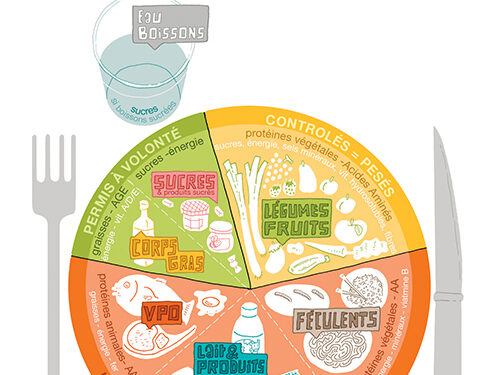The desire to get pregnant
Any woman with PKU who wishes to have a child should be informed that although it is highly unlikely that the unborn child will also have PKU (see mode of transmission of the disease), the child’s own enzyme activity will only develop in late pregnancy.
Specificities of the treatment
For a large part of the pregnancy, the fetus will therefore be exposed to the mother’s blood levels of phenylalanine. To prevent any toxicity to the fetus, the mother must have resumed a strict diet which must be perfectly balanced BEFORE the start of the pregnancy. Pregnancy in an ECP woman is a planned event.
Treatment objectives :
The objectives of maternal treatment are to balance blood phenylalanine levels before the onset of pregnancy, while avoiding weight loss. Once pregnancy has begun, care should be taken to ensure that the specific needs of the pregnant PKU woman (especially mineralsA mineral is an inorganic substance present in the human body.
Whether naturally formed or not, the mineral is defined by its chemical composition and the arrangement of its atoms. The term mineral is used when the body of a man weighing 70 kg contains more than 5 g of the element. The main minerals are: calcium, sodium, magnesium, phosphorus, and potassium., vitamins and trace elements) are adequately covered, while trying to limit the digestive problems of early pregnancy. These conditions are necessary to ensure the proper development of the foetus and to avoid its intoxication by high blood levels of phenylalanine.
Planning ahead for pregnancy is critical to achieving these objectives. Women who are not following the strict diet must start to do so before conception!
To do this, as soon as you have made the decision, make an appointment with your partner for an initial consultation. This is a decision and a process that must be carried out together, as the resumption of a strict diet is often a little difficult, and your partner must understand this, be aware of it and help you.
During this consultation, the medical aspect of the treatment will be discussed in detail to understand its importance. The requirement for near-normal blood levels (2-5 mg/dl) to prevent foetal malformation and other complications will be explained. Your unborn baby is unlikely to be affected.
The social care will be done and explained (with the update of the ALD 100% care), so that you can organise your stock management of hypoprotein food and amino acidAmino acids are molecules that combine to form proteins. 20 amino acids make up the proteins of the human body. Of these, 8 are essential (our body cannot synthesise them, they must be supplied by the diet): isoleucine, leucine, lysine, methionine, phenylalanine, threonine, tryptophan, valine.
Arginine and histidine are semi-indispensable. In fact, only infants need to take them from their food.
Cysteine, glycine and tyrosine may be indispensable for certain populations mix (see supply circuit).
The dietary treatment and possible “starting” difficulties will be explained to you:
- The first difficulty is to get used to a very strict low protein diet, by limiting the natural foods that you may have introduced into your daily diet for several years. In fact, the phenylalanine intake that you will be able to tolerate will correspond more or less to the “tolerance” that you had when you were a child;
- The second difficulty is to take a phenylalanine-free amino acidAmino acids are molecules that combine to form proteins. 20 amino acids make up the proteins of the human body. Of these, 8 are essential (our body cannot synthesise them, they must be supplied by the diet): isoleucine, leucine, lysine, methionine, phenylalanine, threonine, tryptophan, valine.
Arginine and histidine are semi-indispensable. In fact, only infants need to take them from their food.
Cysteine, glycine and tyrosine may be indispensable for certain populations mixture again, if you had stopped taking it; you will therefore have to try several of them to satisfy your taste (the liquid forms are to be drunk cold). The dietician will have you choose some in different packagings and in certain quantities, so that, depending on your professional life, they are easier to take. They should be distributed throughout the day; - The third difficulty is to readjust the energy intake to your usual energy intake so that you do not lose weight. The list of low protein foods (covered by the Social Security) will be at your disposal to satisfy your appetite and complete the energy intake.
Vitamin and mineralA mineral is a natural inorganic element or compound. In the human body, the main ones are: calcium, sodium, magnesium, phosphorus, potassium… status will need to be checked before pregnancy begins, to correct any pre-pregnancy deficiencies and often to maintain supplementation throughout the pregnancy. This means that you need to go back to full nutritional education, as you may have forgotten, and the practice of dieting has changed since the days when your parents did it.
Today, many more low protein foods and amino acidAmino acids are molecules that combine to form proteins. 20 amino acids make up the proteins of the human body. Of these, 8 are essential (our body cannot synthesise them, they must be supplied by the diet): isoleucine, leucine, lysine, methionine, phenylalanine, threonine, tryptophan, valine.
Arginine and histidine are semi-indispensable. In fact, only infants need to take them from their food.
Cysteine, glycine and tyrosine may be indispensable for certain populations blends are available to patients and allow better acceptance of the diet. But the motivation and the extraordinary result of pregnancy and birth after a well-followed diet “erases” these difficulties. Your blood levels of phenylalanine must be perfect and therefore monitored very regularly (at least once a week) BEFORE considering a pregnancy. You must therefore learn to make your own blotters or ask your partner, who must be aware of the usefulness and importance of a good metabolic balance for the future baby.
When your weight is stable, your blood levels of phenylalanine are below 5 mg/100ml and you feel able to maintain a strict diet for several months, the doctor will then allow you to stop your contraception.
Some tips before and/or during your pregnancy
The tolerated amounts of phenylalanine are low: prepare your meals so that they are distributed throughout the day. Cook so that there is variety in your meals and you don’t get bored. You should enjoy eating. Your energy intake should be normal, but to ensure that it is sufficient, use low-protein products and have small snacks in the morning or afternoon.
As for children on a diet, it is preferable, for a better balance, to take your amino acidAmino acids are molecules that combine to form proteins. 20 amino acids make up the proteins of the human body. Of these, 8 are essential (our body cannot synthesise them, they must be supplied by the diet): isoleucine, leucine, lysine, methionine, phenylalanine, threonine, tryptophan, valine.
Arginine and histidine are semi-indispensable. In fact, only infants need to take them from their food.
Cysteine, glycine and tyrosine may be indispensable for certain populations mixtures in 3 or 4 intakes per day and at best at the time of ingestion of natural proteins to promote anabolism.
At home
Make meals as similar as possible to those of your partner: the notion of “sharing” is important.
Lead a normal social life, this will mitigate
- You can go to a friend’s house for dinner and let them know (and possibly bring your own bread or some of your own food);
- You can go to a restaurant and have a starter and a vegetable or potato dish (and estimate how many parts of phenylalanine this represents), a fruit dessert or a sorbet;
- If you have close family members who are willing to “cook” for you, provide them with some low-protein foods (flour, etc.) and give them some recipes (doughnuts, pies, custards, etc.).
Do not isolate yourself ! You will feel much more fulfilled and will have a much calmer pregnancy.
In your professional life
Tell people around you that you are on a special diet. Do not “hide” when taking your amino acidAmino acids are molecules that combine to form proteins. 20 amino acids make up the proteins of the human body. Of these, 8 are essential (our body cannot synthesise them, they must be supplied by the diet): isoleucine, leucine, lysine, methionine, phenylalanine, threonine, tryptophan, valine.
Arginine and histidine are semi-indispensable. In fact, only infants need to take them from their food.
Cysteine, glycine and tyrosine may be indispensable for certain populations mixture. To better control your diet, it is best to bring your meals to your workplace.
If you feel nauseous, it is important that you are able to take your amino acidAmino acids are molecules that combine to form proteins. 20 amino acids make up the proteins of the human body. Of these, 8 are essential (our body cannot synthesise them, they must be supplied by the diet): isoleucine, leucine, lysine, methionine, phenylalanine, threonine, tryptophan, valine.
Arginine and histidine are semi-indispensable. In fact, only infants need to take them from their food.
Cysteine, glycine and tyrosine may be indispensable for certain populations mixtures. Repeat the doses throughout the day, in small quantities. Prepare them and take them cold: this reduces the taste and smell !
This period usually only lasts a few weeks! Your diet will be much easier during the last trimester of your pregnancy. Indeed, the liver of the foetus has an enzymatic activity which will appear at the end of the pregnancy allowing it to purify the phenylalanine for it as well as for you. The increase in your tolerance will then be very noticeable and the diet can therefore be gradually extended.
There is very little risk that your child will be phenylketonuric; it will be a healthy carrier (as were your parents). On the day of your delivery, you will be able to resume your usual diet. You will also be able to breastfeed your baby, without the need for you to maintain a controlled phenylalanine diet.





